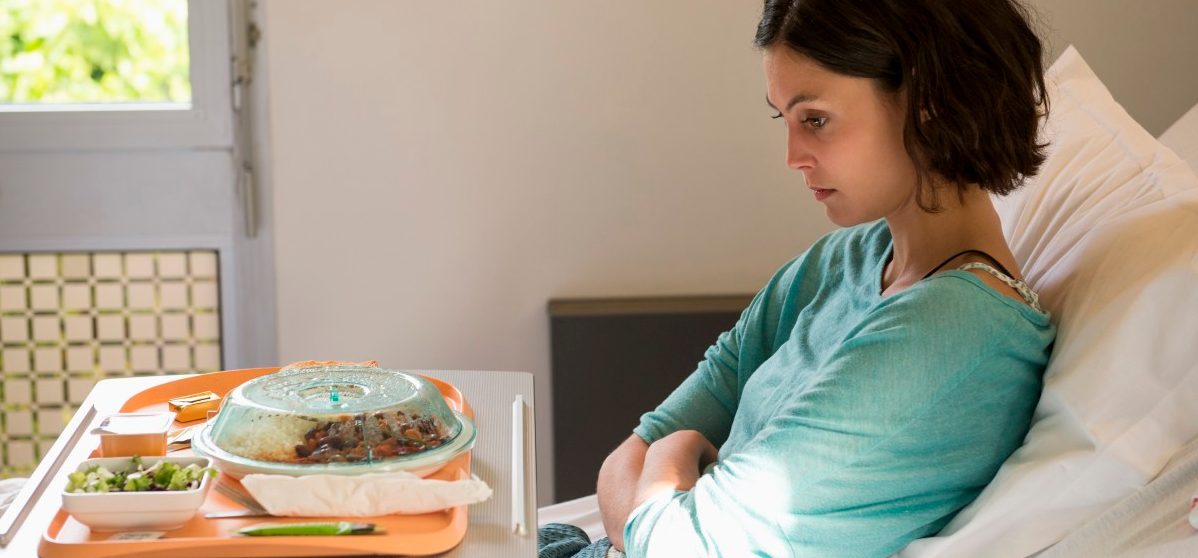Can You Starve Cancer?

Foods rich in antioxidants may – or may not – help fight cancer.
Forty years ago, Dr. Judah Folkman began his long trek toward the very modern theory that growing tumors could be starved to death by cutting off their blood supply. For his efforts, the medical community (at first) mocked and ostracized him.
His theory was based on a natural process in our bodies called angiogenesis – the growth of new blood vessels under certain circumstances such as healing an injury or during pregnancy. Blood vessels also supply tumors with nutrients that help them grow, sometimes rampantly.
The body has a natural system of stimulators and inhibitors that encourage blood vessels to grow as needed, or prune them back when there are too many.
Based on Folkman’s tireless efforts, there are a dozen antiangiogenetic drugs available to cancer patients and dozens more in human trials. Their advantage: tumors may be reduced or eliminated without the use of chemotherapy or radiation, both of which typically have serious side effects that leave cancer patients exhausted, weak, and susceptible to complications that can be nearly as bad as the disease itself.
The increasingly common belief, championed most publicly by William Li, MD, is that our bodies form microscopic tumors all the time, throughout our lives. The difference from one person to the next: some start to grow and turn malignant, others never develop. Li is the president and medical director of the Angiogenesis Foundation.
Li believes you can begin to prevent growth of those microscopic cancers by fueling your body’s angiogenesis inhibitors with foods and beverages that contain the right molecules.
According to the Angiogenesis Foundation, those include green tea, strawberries, oranges, pineapple, red grapes, red wine, bok choy, soy beans, licorice, turmeric, artichokes, tuna, parsley, olive oil, dark chocolate, and pomegranate, among others. The list is long enough that you inevitably will find something you like to eat. Anyway, who doesn’t like chocolate?
This makes sense, Li believes, because most treatment of cancer with antiangiogenetic therapy today is in people with very advanced forms of the disease. That’s an uphill battle in any case. “(We’ve) discovered that Mother Nature has laced many foods and beverages with naturally occurring inhibitors,” Li told the non-profit organization Stand Up To Cancer.
“What are the naturally occurring sources we can add to our diets to boost our bodies’ defenses? We’re giving patients a new tool to make the world a healthier, and tastier, place.”
The crusading Li has taken on another challenge besides getting the public – and his profession – to latch on to this seemingly simple way to reduce or prevent tumors by starving them to death.
Since the food industry isn’t involved in cancer research, and the pharmaceutical industry isn’t involved in food research, they are like ships passing in the night, missing an opportunity to catalyze antiangiogenetic breakthroughs. So Li has paired his foundation with other non-profits to systematically develop foods for cancer prevention that are tested and categorized.
What’s wrong with simply taking antiangiogenetic drugs approved by the Food and Drug Administration, like bevacizumab (Avastin), which is so widely used it’s on the tip of many cancer patients’ tongues? Nothing. They are just very expensive and not available to everyone who needs them.
Besides, if you are wise in the ways of antioxidants, molecules found in many foods that are believed to help prevent cancer by stopping the release of free radicals from cells, then you know that the foundation food list is largely composed of foods that contain them. The classic double-whammy.
There are now 12 antiangiogenetic drugs available to cancer patients, more than 25 in the final stages of human testing, and more than another 100 in preliminary human trials, according to a Step Up to Cancer report.
It’s worth noting that another report, by the venerable Massachusetts Institute of Technology (MIT), is a bit sobering in contrast.
A study by researchers at MIT and Massachusetts General Hospital reported that cancer cells are still able to divide and conquer even when deprived of the nutrients they need to grow via an alternate pathway that ultimately allows them to feed off of fatty molecules called lipids.
The upshot of the finding is the development of new drugs that could disrupt this alternate route that helps blood-deprived cancer cells grow, amounting to another way to starve the cells to death.
Meanwhile, just eat your fruits and veggies, not junk food. That way, you are well on your way to a healthy diet, you probably will lose weight – which can help prevent obesity, heart disease, and diabetes – and you just might be starving those tiny cancers that could one day grow into something much worse. The best part: you have nothing to lose while potentially saving your life.
Updated:
February 19, 2020
Reviewed By:
Christopher Nystuen, MD, MBA